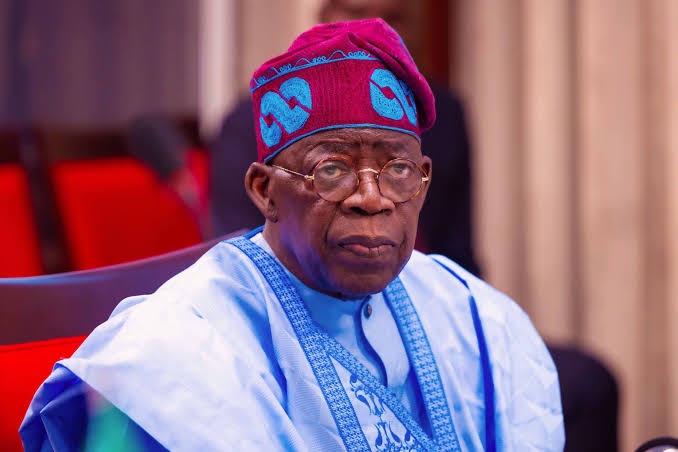LG AUTONOMY: The Role of Local Govt in Enhancing Security and Good Governance [Full Paper]

The below is a Paper presented by Prof. Benjamin Ogele Okaba, President of Ijaw National Congress (INC) on the National Discourse on Nigeria's Security Challenges and Good Governance at the local government level organised by the House of Representatives on the 27th of May, 2024, at Abuja Continental Hotel, FCT, Abuja. Excerpts:
I will begin my address today by thanking GOD that we still have a geographical expression that we call Nigeria. Let me also thank the organizer’s and sponsors of this event for deeming it fit to organize a programme on national security, perhaps through discussions like this we may tell ourselves the truth and take a stand in moving our dear country Nigeria forward.
GOOD GOVERNANCE
The World Bank describes governance as the manner in which power is exercised in the management of a country's economic and social resources for development.¹ Some authors have described good governance as encompassing efficient and effective public administration, national policies and sound management of all resources. it calls for the ability of a state to anticipate challenges to its well-being, provide core services to its people and then augument these services, act as a catalyst of change and guide the various forces in a society towards harmony.² It has been argued that: since the early 1990s, there has been a growing interest in issues related to democracy and good governance around the world. This phenomenal growth of interest reflects, in part, the increasing acceptance of the fact that democracy and good governance are not a luxury, but a sine qua non.
Democracy, which is the basis for good governance, provides space for all people in a given society to interact, intervene and participate in issues that affect their lives.³ Consequently, good governance implies participation, transparent, accountable, effective and equitable management of the public affairs where the actions of public officials are guided by rules. Good governance also implies that public resources and authority are used to benefit the entire community. In practical terms, democracy and good governance require, among others, active participation in decision making processes by the people, directly or through their duly elected representatives, parliaments and/or associations. Thus, participation not only recognizes people as citizens but makes government more representative of, and responsive and accountable to, the people it seeks to serve.⁴
Governance also entails a series of decision-making and their implementation. It is the quality of these decisions and the manner by which they are implemented that determines the effectiveness of governance. The quality of decisions and the effectiveness of their implementation will depend on a variety of factors, ranging from the constitutional/legal and ethical, the human and material resources, the working environment, leadership, commitment and the political will, as well as the pattern of decision-making and its management.⁵ Quality or credible elections have been argued to also be crucial to good governance, as elected representatives can hardly fulfill their roles if elections are flawed.⁶
Having examined what good governance entails, I now proceed to discuss Nigeria’s security challenges.
NATIONAL SECURITY
The term security has been described as the development of confidence among citizens of a nation that their territorial integrity, sovereignty, national core values and interests would not be attacked by any hostile force, a kind of freedom from fear and belief that one’s liberty would not be put in jeopardy by an extraneous force. It involves protecting the country from internal threats and divisive forces.⁷
While several models of security have been propounded, I adopt the democratic security model which takes into account the political, economic, environmental, cultural and social aspect of security.⁸ It has been argued that a society that neglects the need for equal distribution of resources amongst its citizens prepares a thriving ground for negative vices such as armed robbery and hired killings.⁹
National security on the other hand entails, all the measures put in place by the government to provide decent and meaningful livelihood for its citizens. This is based on the fact that security or national security at the international sphere has been given a broader dimension to accommodate issues such as the provision of the basic necessities of life such as food, fuel, medicine and shelter. Addressing these needs is important for the attainment of national security and overall peace and development, as social unrest arising from the absence of such basic human infrastructure may result to security problems and conflicts.¹⁰
The security architecture in Nigeria is constitutionally driven. The federal government controls all the instrumentality of government (the armed forces, and paramilitary) to secure the lives and property of its citizens. Also the government at all levels is placed with the constitutional responsibility of providing security and welfare for its people.¹¹ In the face of this duty placed on the Nigerian government, the nation has in the recent past experienced an alarming rate of insecurity. Ethno-religious conflicts, violence, kidnapping, terrorism among others are some of the dimensions of insecurity in the country. Insecurity has taken different dimensions in the various regions in Nigeria.¹²
Ranging from the Niger Delta youth restiveness in the South-South region of the country, which is as a result of the activities of oil companies and the neglect of the region by the government. This is one of the several instances of insecurity in the country. The amnesty programme and the establishment of the Niger Delta Development Commission and the Ministry of Niger Delta Affairs are commendable initiatives by the Nigerian government to address the challenges of the region.
The Boko Haram insurgency has been the greatest challenge to internal security in the North-East, North-West and North Central from 2009 till date. This has led to the destruction of human lives, properties and the economy of Nigeria. The suicide bombing of the United Nation's building in Abuja, the Police Force Headquarters bombing, on the 25th December 201I, bombing of St. Theresa's Catholic Church, Madala in Niger State, the 2012 Easter bombing in Kaduna, the killing of innocent students at college of Agriculture Yobe State and so many other target bombings and shootings in Kaduna, Kano, Bauchi, Plateau and Gombe states are some of the many destructive activities of the Boko Haram insurgency.¹³
LOCAL GOVERNMENT
Section 7 subsection 1 of the 1999 Constitution (as amended) guarantees the existence of local government in Nigeria but the same Constitution hinders the autonomy of the local government. The Constitution places the local government under the state government subsection 5 of the Section when it states that "the House of Assembly of a State shall make provisions for statutory allocation of public revenue to local government councils within the State". This does not only place the financial autonomy of the local government under the state but also its political independence. This makes local government executive and legislative houses dance to the whims and caprices of not only the chief executive of state but also that of the State House of Assembly.¹⁴
What then is the role of local government in good governance and national security in Nigeria? As regards the role of local government in addressing Nigeria’s security challenges, this dates back to pre-colonial era in the country. For instance, it has been argued that in the pre-colonial Igbo society, disputes within the family were settled by the most elderly member of the affected family i.e. the family head.¹⁵ Elders in this society were respected because they represented the spirit of the ancestors. The family head was the eldest man of the oldest surviving generation in the family. Disputes not resolved by the family units were referred to the Village Assembly for arbitration. The Village Assembly was a small face to face society. At the Village Assembly also, elders were the dominant political force where they listen to either parties or cases of offences and make decisions on passing judgments. When there is dissatisfaction or the need to consult the oracle, then the elders at the Village Assembly specify this.¹⁶ The oracle was the last court of appeal. It was noted for its reputation for just judgments. A diviner’s role is very important in the efficacy of the oracle in pre- colonial Igbo society. Once a person is declared guilty at any level of the dispute resolution process (native policing mechanism), then the lower age-grade which comprises the youths immediately execute and implement judgments.¹⁷
In pre-colonial Hausa land in northern Nigeria adopted theocracy, a system of administration which is based on Islamic law. Islamic law in itself served as a checking mechanism against immorality and crime.¹⁸ Punishments were duly stipulated for various crimes under the Islamic law. The Sarki (King) in Hausa land alongside his village, district heads and Council of Ministers ensured the strict application of the Islamic laws within their domains. Interestingly, among the important officials of Hausa land which were drawn from the noble class was the Sarkin Yan Doka or Chief of the Police, who took charge of prisoners charged with serious offences, inflicted corporal punishment and acted as the town crier and watchman.¹⁹
These two examples of what existed in pre-colonial Nigeria indicate that effective local government system can address the challenges of insecurity and good governance in Nigeria. You recall that district heads were symbols of authority that were closer to the people.
The most notable function of local governance system is to deliver basic services such as healthcare, education, water, sanitation, justice, and security. Managing delivery of these services at the local level can contribute to sustaining peace in several ways. People are best positioned to describe their own needs and aspirations, and local governance actors are closer to the people than national authorities or international nongovernmental organizations. This enables them, at least in theory, to respond to people’s needs, address local level inequalities, and leverage existing capacities for service delivery.²⁰
It has been argued that in recent years, South Africa has come to be called the “protest capital of the world.” Between 1997 and 2013 there was an average of 900 community protests a year. More recently, the number has climbed as high as 2,000 a year. This apparent frustration was borne out by a survey by Good Governance Africa indicating broad dissatisfaction with government performance. The survey also found that the majority of respondents thought people were attracting attention to their grievances through violent protest. This dissatisfaction permeates all the way to the local level, where the perceived effectiveness of service delivery, economic development, and administration varied widely among municipalities.²¹
It is trite that insecurity has reached its peak in Nigeria, considering the number of persons that lost their lives on daily basis. This is a clear indication of the total neglect of the local government system. Kidnapping now takes place in rural areas because the jobless youths who are into kidnapping discovered that parents whose children are rich are in the villages, they are prone to kidnapping. The former Minister of Finance, Dr. Ngozi Okonjo Iwela’s mother was kidnapped in a village in Delta State.²² The father of the prolific writer, Chimmanda Adichie was kidnapped in the village in Anambra State. The father of Mikel Obi was a victim of kidnapping in the village and former Nigerian Football Coach, Sampson Siasia’s mother was also kidnapped in the village in Bayelsa State. As a result of increase kidnapping in rural communities, young men and women termed to take their parents to the cities where they reside, still the city is not safe as kidnapping is more rampant in urban towns. Other crimes in the village include cult crises, ritual killings, armed robbery, banditry and political violence.²³
As stated above, one of the cardinal principles of good governance is that of credible elections. Indeed once credible elections is guaranteed at the local government level, the foundation for good governance would have been laid paving way for peace and security.
In Nigeria today, especially at the local government level credible elections appears to be an illusion. For instance the former Governor of Ekiti State, Dr Kayode Fayemi relying on the Local Government Administration (Amendment) Law, 2001 of Ekiti State, ousted and replaced elected local government councils in the state with unelected caretaker committees before the expiration of their tenure. In a lawsuit brought against the State Governor by the ousted local government Chairmen, the Nigerian Supreme Court declared the action of the Governor unconstitutional. The Supreme Court held that Section 7(1) of the Nigerian Constitution provides for democratically elected local government councils and any law enacted by the State House of Assembly must be in accordance with the Constitution. Despite this decision of the Nigerian Supreme Court, State Governors have continued to arbitrarily oust and replace democratically elected local government councils and replaced them with unelected caretaker committees.²⁴
It has also been argued that, Since the return of democracy in the 4th Republic in 1999, the local government system has been neglected by the federal and state governments through the Joint Account System where local governments is now at the mercy of states. The implementation of the Joint Account has been abused and become problematic as various state governments have turned local government into money making venture.²⁵
Productivity and performance at the local government level are at its lowest ebb and the system cannot carry out the mandate as a functional third tier of government in terms of economic and physical development, thus the escalation of insecurity in rural areas in Nigeria. It is on record in Nigeria that herdsmen and farmers clash emanated from rural communities in northern part of Nigeria where local governments are helpless to use the government resources to quell bloody crisis before the intervention of State and Federal Government.²⁶
Where Do We Go From Here?
I. Uganda and Ghana at some point had to amend their constitutions in order to re-introduce a multi-party system, with provisions for local government to function effectively. In Uganda, for instance, the re-emergence of local government after years of centralized administration was a product of both internal and external forces. The 1999 Constitution should be amended to allow for effective local government administration.²⁷ Issues such as joint state and local government account must be abolished;
II. To ensure credible elections, state governments should not conduct elections into local government positions;
III. Local government should have a bit of control on local policing;
IV. Citizens who reside or are from the various local government areas should as of right demand good governance from local government councils;
V. State Governors and Houses of Assembly should allow local government autonomy to scale through the constitutional amendment process.
SOURCES:
1 World Bank (1992). Government and development, International Bank for reconstruction and development^ Washington, D.C.
2 Amoako, K.Y (1997). Speech by HEDR K.Y, Amoako, the executive secretary of the United Nations Economic Commission No.3, Pp. 9-11. requirement to promote sustainable social and economic development.
3 Said Adejumobi, The Role of Parliament in Promoting Good Governance, Economic Commission for Africa, 2010/2011, 8.
4 Ibid.
5 Ibid.
6 Ibid, 9.
7 Buzan B. People , State and Fear: An Agenda for International Security in the Post-Cold War Era, 1991
8 Ibid
9 Peter Naankiel & Others, Police Reforms and National Security In Nigeria
10 Orikpe Ephraim Azubike. Education and National Security: Challenges and the Way Forward. Journal of Education and National Research. Vol. 3. No. 10. 2013. 1
11 see item 38 of the Exclusive Legislative list of the 1999 constitution and section 14 of the 1999 constitution.
12 Segun Joshua, Jide Ibietan, Dominic Asuh. Education and Nigeria’s National Security.
13 Orikpe Ephraim Azubike. Education and National Security: Challenges and the Way Forward.55.
14 James Jacob, Olushola. E. Akintola, Ishaka Dele, Seperation of Powers Grassroots Development And Executive- Legislative Relations At The Local Government Level, 20.
15 Peter Naankiel & Others, Police Reforms and National Security In Nigeria
16 Ibid
17 Ibid.
18 Ibid.
19 Ibid..
20 The Role of Local Governance In Sustaining Peace, International Peace Institute, 2018
21 Ibid.
22 Omini Ubi Ubi , Ofre Robert Akie, Local Government System and Escalation of Insecurity in Nigeria, International Journal of Public and Management Research, 2021.
23 Ibid.
24 Colin’s Okeke, The Growing Demand for a Democratic System of Local Government in Nigeria. Assessed from inkedin.com/pulse/growing-demand-democratic-system-local-government-nigeria- okeke?trk=public_profile_article_view.
25 Omini Ubi Ubi , Ofre Robert Akie, Local Government System and Escalation of Insecurity in Nigeria, International Journal of Public and Management Research, 2021.
26 Ibid.
27 Said Adejumobi, The Role of Parliament in Promoting Good Governance, Economic Commission for Africa, 2010/2011, 51.
#penglobalspeech



